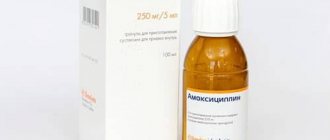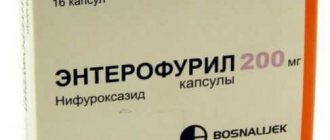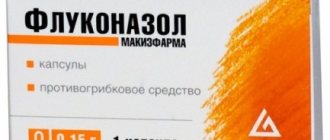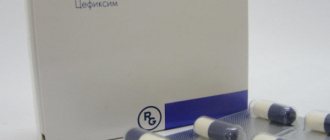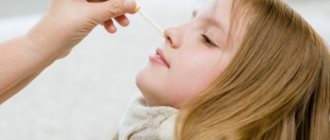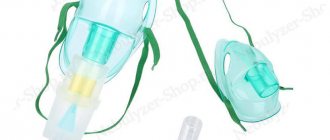Phenibut is a drug with a combined nootropic and tranquilizer effect, which is often used in pediatric neurological practice to relieve hyperactivity, neurological, mental disorders, and sleep disorders.
According to the instructions for use, Phenibut improves the condition of the brain due to natural components, exhibits antioxidant properties, therefore it is considered a relatively safe drug of this pharmacological group, which determines its priority for use in pediatrics as a psychostimulant.
Release form
The drug is available in tablets that contain 250 mg of the active substance - aminophenylbutyric acid (phenibut hydrochloride). Auxiliary components form a wafer and improve the taste. The tablets are provided with a score for dividing in half. This is important because Phenibut according to the instructions is most effective in two age categories:
- from three to eight years;
- from eight to fourteen years.
This risk makes it possible for children of different ages to receive the required dose of the drug.
Tablets are produced in blisters and packaged in cardboard packs of 10 - 50 or 100 pieces; the choice of the amount of the drug is correlated with the duration of the course of therapy.
What is the drug Phenibut?
A drug based on the active substance Phenibutum (aminophenylbutyric acid) belongs to the group of nootropics and anxiolytics (formerly tranquilizers). Only a qualified specialist has the right to prescribe Phenibut and it is purchased only with a prescription.
As a nootropic drug, Phenibut solves the following problems:
- develops brain activity, improves learning and memory abilities;
- helps cope with mental overload.
As a tranquilizer, Phenibut has a persistent calming effect, relieves anxiety, and relieves insomnia.
Phenibut can help a three-year-old child cope with enuresis, stuttering and nervous tics of varying severity. The drug is effective in case of problems with the vestibular apparatus and frequent dizziness.
Despite the stated anxiolytic effect, in some cases Phenibut, on the contrary, can have an stimulating effect on the child. If the baby stops sleeping and becomes hyperactive, the parents and the doctor must decide whether to continue taking the pills or stop taking the drug.
Indications
Phenibut for children two, three or five years old is effectively used in the case of: neuroses of various origins, stuttering, convulsions, panic attacks, speech disorders, delayed speech development. In older children, the drug is effective for attention deficit hyperactivity disorder, insomnia, increased anxiety, enuresis, high fatigue, obsessive states, various types of psychopathy, motion sickness.
Phenibut helps with autism and is prescribed for nervous tics.
Opinions of doctors and patients about Phenibut
Reviews from patients who have taken phenibut vary significantly. About 1/3 of patients note that the side effects after taking Phenibut outweighed all the positive effects in the treatment of their disease. The sleep of such patients may have returned to normal, but drowsiness, headache, dizziness and other unpleasant side effects appeared.
Feedback from the remaining 2/3 of those who took it is positive. With the correct dose calculation per day, sleep improved, anxiety disappeared, and the severity of apathy, restlessness, and irritability decreased. Many reviews from users also emphasize that using Phenibut three times a day not only helped improve sleep and eliminate mood problems, but also cope with intense mental stress. The medicine, as reviews from those who have taken it, is very popular with students during the period of preparation for exams.
Most reviews from doctors and parents about Phenibut are positive and confirm the good effect of the tablets on nervous tics, stuttering and other problems with the nervous system. According to mothers, the drug begins to act quite quickly, and after a course of this medicine, the child’s memory improved, irritability disappeared, and sleep became more restful and of better quality.
There are approximately 1/3 of negative reviews about Phenibut. In some of them, parents complain about the lack of therapeutic effect, in others, on the contrary, they note adverse reactions in the form of increased anxiety, dizziness, irritability, headaches and other symptoms from the central nervous system. In some patients, the medication causes irritation of the digestive tract.
In addition, many mothers consider the drug to be very strong and are afraid to give it to their children, especially at an early age, since psychological addiction to the pills often develops. In addition, the cost of a course of treatment with a drug from some manufacturers (for example, from Latvian) is called too high, and people are dissatisfied with the quality of less expensive analogues.
Methods of administration
According to the instructions, Phenibut is taken in a course of two to three weeks. According to the doctor's decision, the course can be extended to one and a half months. In some cases, re-treatment is required after a month's break. The drug does not accumulate in tissues, but with long-term use it requires monitoring by laboratory tests. Eosinophilia is possible, which warns of sensitization of the child’s body.
Take the drug orally, washing down the tablet with a small amount of water, without chewing, without preliminary crushing.
The course of therapy begins immediately with the full dosage; there is no need to gradually increase the dose. But they stop taking Phenibut gradually to prevent a relapse of negative symptoms. The dosage is reduced daily in combination with sedatives.
Prices and terms of sale in pharmacies
A prescription for the medication is not needed. If necessary, you can obtain a prescription with the dosage and frequency of administration per day from your doctor.
A neurologist, psychiatrist, or pediatrician can prescribe a medicine. A prescription is especially important if the drug is prescribed to a child and you need to buy a powder prepared by a pharmacist. If a pharmacist requires a prescription, it may not always be available in a private clinic, which is important to remember. Not all clinics that provide medical services to the public on a private basis have the right to prescribe prescription drugs. But, despite the indication in the instructions “dispensed by prescription,” most pharmacies will sell the product without a doctor’s recommendation.
The price of Phenibut varies greatly between pharmacies.
On average, the price is about 180 rubles, but can range from 100 to 450 rubles. The price depends on who produced the drug. If you plan to buy a foreign-made medicine, you should be prepared to pay more. A Russian-made medicine has a price of 100 to 150 rubles.
Dosage
Children under 8 years of age are prescribed 125 mg of the drug twice a day. From 9 to 14 years, the dose is doubled and the intake is increased to three times a day. From the age of 15, Phenibut is prescribed in an adult dosage: 250-500 mg, three times a day. The maximum single dose is 750 mg.
To treat seasickness, the drug is taken before the trip (half an hour before) in the dose previously calculated by the doctor. If the baby has already begun to feel nauseous when moving, Phenibut is not effective.
An overdose of the drug is fraught not only with nausea and vomiting, but also with drowsiness, a drop in blood pressure, and impaired renal function. It is possible to develop fatty liver, allergic reactions, and eosinophilia in the blood.
In case of overdose, the child's stomach should be rinsed and activated charcoal should be given. In the future, if necessary, symptomatic therapy is prescribed to help restore internal organs.
Therapeutic effect (what the tablets are for)
Phenibut is an analogue of GABA and phenylethylamine. In nature, GABA is the most important brain metabolite, which ensures the normal functioning of nerve tissue. GABA improves attention, memory, and the efficiency of brain activity, that is, it has a nootropic effect (many people mistakenly compare the nootropic effect with Glycine).
Most doctors prefer to classify Phenibut as a drug that has a pronounced nootropic effect and a weak tranquilizing effect. With the help of the medicine, the state of internal tension, mood lability, excessive emotionality and other behavioral deviations are effectively relieved, and side effects are minimal.
The indications for the use of Phenibut are wide, but its effect is most active when an adult or child needs to simultaneously maintain performance and eliminate anxiety.
The action of Phenibut is as follows:
- reducing the level of internal tension;
- elimination of anxiety, fear, worry;
- sleep becomes normal and complete;
- improvement of cerebral circulation;
- improvement of functional brain activity;
- reducing the severity of problems with speech and movements (because of this effect of Phenibut, it is often prescribed to children over 8 years old for stuttering), etc.
As practice shows, the effect of Phenibut on people over 65 years of age produces a stimulating effect. The active substance does not cause relaxation or lethargy in elderly patients, and side effects are kept to a minimum.
Indications for treatment with Phenibut in children
Reviews from neurologists about the drug are positive because:
- it rarely produces side effects;
- gives a strong effect, while having low toxicity;
- has a small list of contraindications.
But among the reviews from parents there are also negative ones.
Educators note that the use of the medicine is accompanied by tearfulness, anxious feelings and nervousness.
Attention! Medical experts claim that the negative effect is caused by incorrect dosage calculations. It is difficult to determine at first how much to give to a child. Hence the side effects.
Only by experience can you determine how many times a day and in what quantity you need to take the product. Pediatricians often neglect this, prescribing Phenibut only in the doses prescribed by the instructions.
How to take Phenibut
The dosage of the drug in childhood depends directly on the pathology. At the age of five years, you can take Phenibut in the amount of 1 tablet per day, no more. It is divided into 2-3 times .
To prevent your child from getting seasick while traveling, an hour before departure you need to take one tablet and drink plenty of water. You can take Phenibut both before and after meals. Like any tranquilizer, Phenibut should be taken as prescribed by a doctor for 2-3 weeks. Then be sure to take a month's break.
Long-term use of the drug may cause changes in the chemical composition of the blood. Therefore, at the age of five, you should donate blood for analysis if the child has been taking the medicine for a long time. Phenibut enhances the effect of antiepileptic and antipsychotic drugs.
Impact on the child's body
While taking Phenibut, the following processes occur in the child’s body:
- Nervous tension is relieved;
- Cerebral circulation is stimulated;
- Brain functioning improves;
- The vascular walls relax;
- Normalizes sleep;
- The child is no longer bothered by fears.
Regular use of the drug normalizes memory, increases attention and overall performance. Positive dynamics are observed after a course of treatment in children with diagnosed speech disorders.
The main effect of the tablets is to improve the transmission of impulses in the central nervous system, normalize metabolic processes, and improve blood circulation.
Contraindications and side effects
Contraindications:
- peptic ulcer of the gastrointestinal tract;
- children under 2 years of age (there are exceptions);
- liver and kidney diseases;
- individual intolerance to the constituent components.
Some parents note a side effect in their children in the form of insomnia.
- irritability;
- allergies in the form of skin rash and itching.
Attention! If a child vomits after taking the medicine, it should be discontinued. It will not have any beneficial effect, because it leaves the body without having time to be absorbed into the blood.

